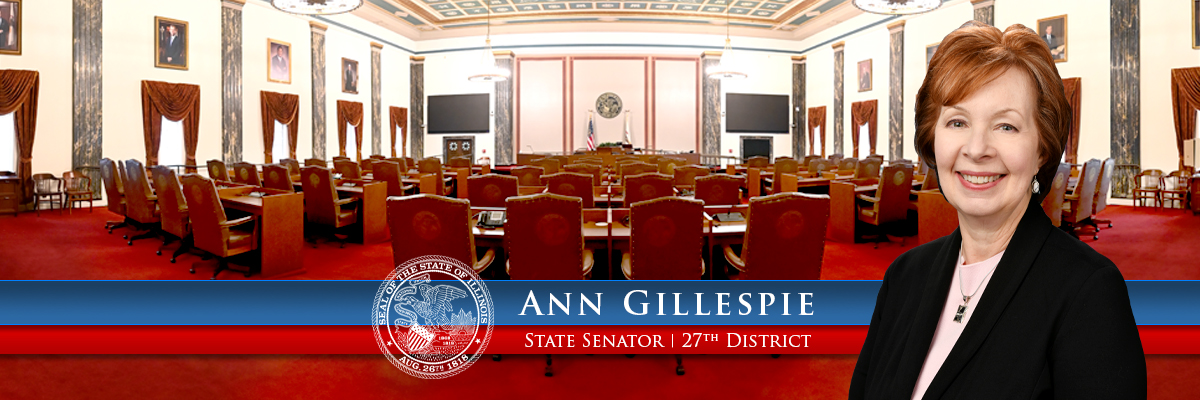 SPRINGFIELD – To improve conditions at nursing homes across Illinois, State Senator Ann Gillespie (D-Arlington Heights) passed legislation in the Illinois Senate to reform how the state assesses and reimburses nursing facilities, and link funding to staffing levels and quality of care.
SPRINGFIELD – To improve conditions at nursing homes across Illinois, State Senator Ann Gillespie (D-Arlington Heights) passed legislation in the Illinois Senate to reform how the state assesses and reimburses nursing facilities, and link funding to staffing levels and quality of care.
“After record investments in public health during the COVID-19 pandemic, many of Illinois’ long-term care facilities willingly remain understaffed,” Gillespie said. “Tying funding to adequate staffing and quality of care will bring an enhanced level of accountability and improve care given to residents.”
House Bill 246 includes the most recent efforts by the state to implement needed change at nursing facilities. The legislation overhauls the state’s nursing home assessment and reimbursement methods by transitioning to a Patient Driven Payment Model and increasing the base per diem rate by $7 to a total of $92.25. Under the current RUG-IV assessment model, nursing homes are incentivized to over-prescribe rehabilitative services to increase their Medicaid reimbursement. The Patient Driven Payment Model more accurately accounts for clinically relevant factors, rather than the amount of patients receiving services.
“Residents in nursing homes across our state deserve the best care we can provide for them," said State Senator Dave Koehler (D-Peoria), a chief co-sponsor of the package. "By ensuring that homes are properly funded and adequately staffed, we lay a solid foundation for exceptional care.”
The package will also address employee shortages at long-term care facilities and reward certified nursing assistants who have struggled during the course of the pandemic. Under the proposal, additional funding will be made available to facilities that incentivize the retention and promotion of CNAs to higher positions, such as scheduling captains.
To address the willful understaffing of nursing facilities, the legislation requires that facilities meet at least 70% of the staffing levels outlined by the federal STRIVE study to be eligible for additional funding. Further, the measure provides $70 million in add-on payments that are tied to quality of care.
House Bill 246 passed the Illinois Senate with bipartisan support and awaits further consideration in the Illinois House.


